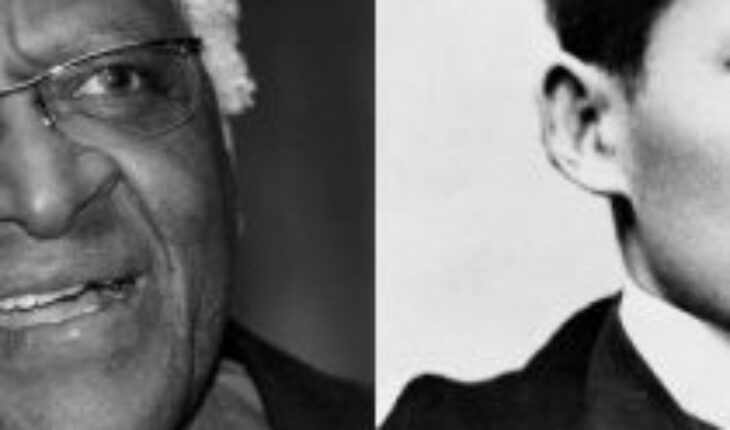The recent death of Desmond Tutu, Anglican archbishop, Nobel Peace Prize, distinguished personality of racial integration in South Africa, coincides with the date of the execution of José Rizal, in the Philippines, also a distinguished figure of peace, also occurred during a last week of December, in 1896, events, at the end of the year, which invite meditation on the times that are leaving and the times that are coming.
Both are apostles of active nonviolence of struggle. In this regard, Tutu’s maxim is of incalculable depth: “If you are neutral in situations of injustice, you have chosen the side of the oppressor.”
For decades we have been living inserted in a culture of neutrality, of express or overlapping indifference to injustices and abuses. It is true that this neutrality can have different origins. It can be imposed, when one does not enjoy freedom to rebel against injustices, either for fear of reprisals, the loss of a job position or status, or voluntary, based on the lack of conscience or on the acceptance to be neutralized as a result of perks or offers that imply the renunciation of values and principles.
Both Tutu and Rizal overcame all kinds of neutralizations, both for the dignity of their peoples, inclusivity and racial integration on the one, independence from Spain on the other, Tutu with his preaching, Rizal with his writings, never appealing to violent ways, and yet both contributed decisively in modifying the reality of their respective nations.
It cost José Rizal his life. Imprisoned for his books in favor of the freedom of the Philippines at nightfall before his execution, avoiding the iron surveillance of the guards of Fort Santiago, in Manila, center of operations of Spain, he manages to surreptitiously deliver to his mother, Doña Teodora Alonso, who visited him for the last time, a copy of his memorable and posthumous poem “My last Goodbye”, which constitutes one of the most remarkable testimonies of heroism and love of country ever written.
His public firing squad is intended to be a sign of caution for those who dared to rise up against the regime. His martyrdom, however, shakes the souls of thousands of his compatriots, beginning a process that culminates shortly after with the end of Spanish rule over the Philippines.
Every anniversary of his immolation the Philippines flies the flags to greet and honor the chief of its heroes, doctor and philosopher, polyglot, of outstanding intelligence, with studies, in addition to Manila, in Madrid, Paris and Heidelberg, who dedicated his existence to fight for the independence, freedom and sovereignty of his nation, without ever resorting to violence, but to the talent and strength of his written word, especially through his two most famous works, Noli me Tangere (Don’t touch me) and Filibusterism.
Both Tutu and Rizal are among those heroes very unlikely to exist today, that is, capable of offering everything for sublime ideals, not material or economic, but superior, such as freedom, sovereignty and dignity of the homeland and its peoples and must be an example in today’s world, in which these values succumb to money, relativism and the empty struggles of power for power.
Tutu’s maxim about neutrality will be recorded forever, questioning indolent, indifferent and dismissive, in all areas of social events. It is worth recalling the moving stanzas of peace and love that Rizal writes hours before his deadly execution, which will also be forever engraved:
Goodbye, Beloved Homeland, Region of the Sun Dear,
pearl of the Sea of the East, our lost Eden,
to give you I am happy the sad mustia life,
and out brighter, fresher more flowery,
also for you to give it, to give it for your sake.
My idolized Homeland, pain of my pains,
Dear Philippines, hear the last Goodbye,
there I leave everything, my parents, my loves,
I go where there are no slaves, executioners or oppressors,
where faith does not kill, where the one who reigns is God.
Finally, it is not possible to fail to mention in these reflections Roberto Garretón, who also died at the end of the year, an example in Chile of value consistency from his youth until his last days in defense of the dignity of people.
Personalities like them, gifts for humanity, are signs of hope that the world – or at least part of it – will overcome neutralization in the face of injustices and abuses and, on the path of peace, will change the face of the Earth.
The content expressed in this opinion column is the sole responsibility of its author, and does not necessarily reflect the editorial line or position of El Mostrador.





